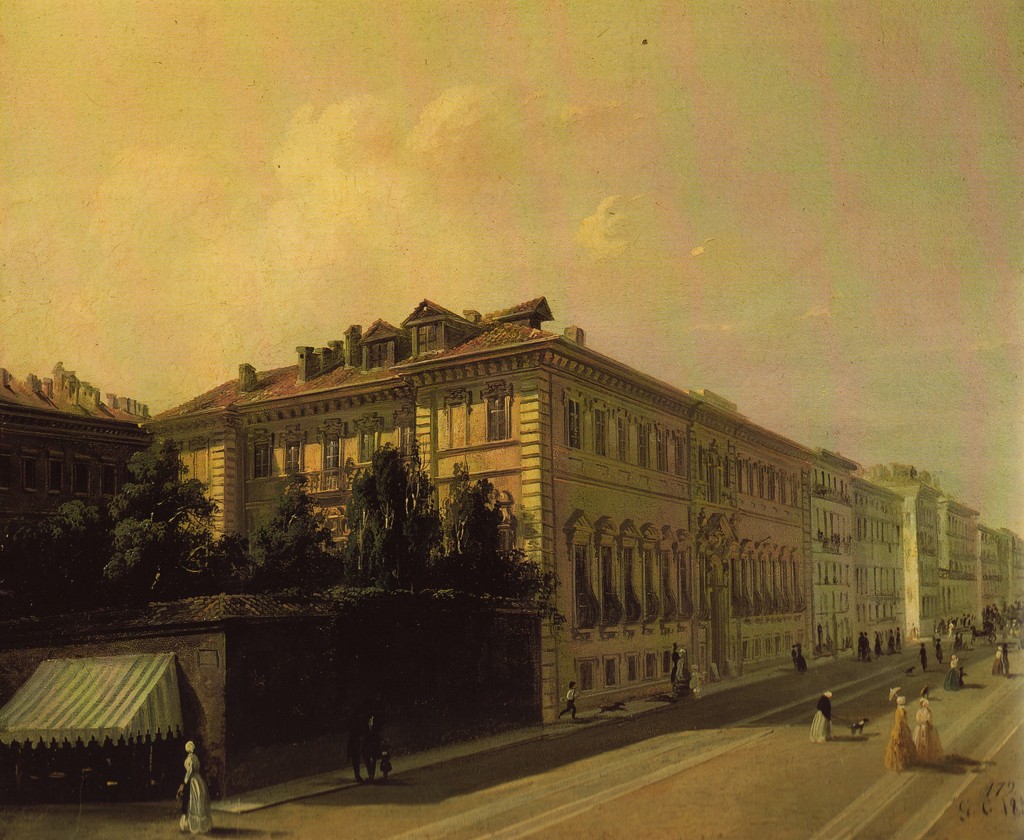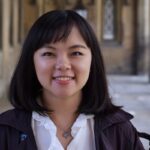Turin, 6-8 September 2023
The Summer School aims to discuss connected and comparative approaches to the global Middle Ages, exploring new
avenues for research in fields such as politico-institutional, intellectual, religious, economic, and environmental studies.
A global approach to the study of the medieval period has only recently come to the fore and is yielding important results, which emphasise the potential of combining the longue durée with a wider geographical scale. While the term ‘Middle Ages’ has proved more pragmatically useful for areas outside the Euro-Mediterranean world than it could have been anticipated, research on the global Middle Ages demands collaboration across different areas of historical research and openness to languages and traditions of studies operating in separate academic disciplines and departments.
The Summer School highlights the dynamic between connected and comparative approaches to the Middle Ages, offering opportunities for methodological reflection as well as examples and case-studies. One of such case-studies is the body-politic metaphor and its role in Euro-Mediterranean and East Asian political thought, as well as the challenges it poses to a comparative and connected intellectual history of the medieval period.
SCIENTIFIC COORDINATION: SERENA FERENTE
SPEAKERS
JUNIOR FELLOWS
PARTICIPANTS
Palazzo d’Azeglio
Via Principe Amedeo 34 – Torino
Palazzo d’Azeglio is a historic building located in the center of Turin, it has been the headquarters of the Turin Humanities Programme – THP – of Fondazione 1563 since 2021. Its history began in 1679, when it was built as part of the second expansion of the city. It was the residence of local noble families, including the Taparelli d’Azeglio, hence the name. Since 1970 it has housed the Luigi Einaudi Foundation, a national point of reference for the social sciences. The interiors and the decorations of the building feature a variety of architectural and decorative styles, which are the result of several refurbishments due to the various owners who have alternated over the course of more than three centuries.




 Gabriele Bonomelli is a Postdoctoral researcher at the
Gabriele Bonomelli is a Postdoctoral researcher at the 
 Chen Cui is a “doctorant” and “chargé de cours” at the University of Lausanne, co-supervised at the University of London. He works on medieval English and Old Norse literature, as well as global medieval travel writing in relation to the Environmental Humanities and cognitive poetics.
Chen Cui is a “doctorant” and “chargé de cours” at the University of Lausanne, co-supervised at the University of London. He works on medieval English and Old Norse literature, as well as global medieval travel writing in relation to the Environmental Humanities and cognitive poetics. Giovanni Di Bella is a PhD. student in Medieval History at the Humanities Department of the University of Messina (Italy) and a subject expert in Medieval History (M-STO/01) at the Department of Ancient and Modern Civilisations (DICAM) of the same academic institution. In 2022, he was a visiting researcher at the laboratory d’Histoire, Archéologie, Littérature des mondes chrétiens et musulmans médiévaux of the University of Avignon (France). He collaborates with various research organisations in the historical field in Italy and abroad. The field of research within which he investigates is cultural history, with reference to diplomatic and missionary relations between the Latin West and the Far East during the 13th and 15th centuries. In addition, he is a full member of the Italian Society for Medieval History and of the
Giovanni Di Bella is a PhD. student in Medieval History at the Humanities Department of the University of Messina (Italy) and a subject expert in Medieval History (M-STO/01) at the Department of Ancient and Modern Civilisations (DICAM) of the same academic institution. In 2022, he was a visiting researcher at the laboratory d’Histoire, Archéologie, Littérature des mondes chrétiens et musulmans médiévaux of the University of Avignon (France). He collaborates with various research organisations in the historical field in Italy and abroad. The field of research within which he investigates is cultural history, with reference to diplomatic and missionary relations between the Latin West and the Far East during the 13th and 15th centuries. In addition, he is a full member of the Italian Society for Medieval History and of the  Susie Heywood studied history at the University of Cambridge where she became interested in medieval political thought and studied a Master’s in Ancient Medieval, and Renaissance thought in order to expand her knowledge of the field. She is currently studying for her PhD at King’s College London looking at the Virtue of Prudence in Giles of Rome’s De Regimine Principum – a topic that allows her to combine her interests in medieval mirror for prince literature, the reception of Aristotle’s ideas of virtue, ideas of the rational, and the connection between medieval political thought and medieval political practice.
Susie Heywood studied history at the University of Cambridge where she became interested in medieval political thought and studied a Master’s in Ancient Medieval, and Renaissance thought in order to expand her knowledge of the field. She is currently studying for her PhD at King’s College London looking at the Virtue of Prudence in Giles of Rome’s De Regimine Principum – a topic that allows her to combine her interests in medieval mirror for prince literature, the reception of Aristotle’s ideas of virtue, ideas of the rational, and the connection between medieval political thought and medieval political practice. Odile Panetta is a Lecturer in Cultural and Intellectual History at the Warburg Institute in London and a postdoctoral researcher at Aarhus University in Denmark, where she is part of a project entitled “BODY POLITIC(S) – The Body in Early Modern Political Thought”. Her current research focusses on discussions surrounding the nature and limits of corporal punishment and ecclesiastical discipline in early modern Reformed thought, from the early decades of the sixteenth century to the end of the era of ‘early orthodoxy’ (ca. 1640). Prior to these roles, she completed a BA in History at University College London, an MA in History of Political Thought and Intellectual History at UCL and Queen Mary, University of London, and a PhD in History at the University of Cambridge; her doctoral research explored the contributions of Italian Protestant exiles to the debate over the legitimacy of killing heretics that raged in mid-sixteenth-century Switzerland, following the burning at the stake of the Antitrinitarian Michael Servetus in 1553.
Odile Panetta is a Lecturer in Cultural and Intellectual History at the Warburg Institute in London and a postdoctoral researcher at Aarhus University in Denmark, where she is part of a project entitled “BODY POLITIC(S) – The Body in Early Modern Political Thought”. Her current research focusses on discussions surrounding the nature and limits of corporal punishment and ecclesiastical discipline in early modern Reformed thought, from the early decades of the sixteenth century to the end of the era of ‘early orthodoxy’ (ca. 1640). Prior to these roles, she completed a BA in History at University College London, an MA in History of Political Thought and Intellectual History at UCL and Queen Mary, University of London, and a PhD in History at the University of Cambridge; her doctoral research explored the contributions of Italian Protestant exiles to the debate over the legitimacy of killing heretics that raged in mid-sixteenth-century Switzerland, following the burning at the stake of the Antitrinitarian Michael Servetus in 1553. Luke Stanek is a PhD student in History at Yale University. His current dissertation project is an exploration of social life in maritime Asia from roughly the 10th to 14th centuries, with a focus on the development of unique social norms and relations on long-distance trading vessels. His broader research interests include the spread of stories, board games, and other forms of entertainment across linguistic boundaries.
Luke Stanek is a PhD student in History at Yale University. His current dissertation project is an exploration of social life in maritime Asia from roughly the 10th to 14th centuries, with a focus on the development of unique social norms and relations on long-distance trading vessels. His broader research interests include the spread of stories, board games, and other forms of entertainment across linguistic boundaries. Flavia Fang (方希) is Teaching Associate of Classical Chinese and Middle-Period China at the Faculty of Asian and Middle Eastern Studies, University of Cambridge. She is also a Ho Peng Yoke Research Fellow at the Needham Research Institute, Cambridge. Her current research investigates the cultural history of olfaction in medieval China. She is the author of a monograph in Italian comparing dreaming and waking in Chinese and European literature (2020), and several upcoming articles on ritual, gender, and Silk Road exchanges. She is more broadly interested in the social and cultural history of medieval China as well as contacts between civilisations in the medieval world.
Flavia Fang (方希) is Teaching Associate of Classical Chinese and Middle-Period China at the Faculty of Asian and Middle Eastern Studies, University of Cambridge. She is also a Ho Peng Yoke Research Fellow at the Needham Research Institute, Cambridge. Her current research investigates the cultural history of olfaction in medieval China. She is the author of a monograph in Italian comparing dreaming and waking in Chinese and European literature (2020), and several upcoming articles on ritual, gender, and Silk Road exchanges. She is more broadly interested in the social and cultural history of medieval China as well as contacts between civilisations in the medieval world. Nicolò Zennaro (1994) is a PhD student in Medieval History at the Centre for Urban History of the University of Antwerp. He obtained his Master’s degree in History from Ca’ Foscari University in Venice in 2020, with a thesis on the organisation of 15th-century Italian mercenary companies. His main areas of interest are the socio-economic and cultural history of Italy in the late Middle Ages and, particularly, of the Republic of Venice. He joined the Back to the Future project in September 2020. His research will define how medieval merchants built and used their future expectations to avoid, deal with and overcome risks in late medieval Venice. This project will show new aspects of premodern capitalism and mercantile society, investigating the correspondence written by nodes of Francesco di Marco Datini’s network trading in the Rialto market between 1389 and 1410.
Nicolò Zennaro (1994) is a PhD student in Medieval History at the Centre for Urban History of the University of Antwerp. He obtained his Master’s degree in History from Ca’ Foscari University in Venice in 2020, with a thesis on the organisation of 15th-century Italian mercenary companies. His main areas of interest are the socio-economic and cultural history of Italy in the late Middle Ages and, particularly, of the Republic of Venice. He joined the Back to the Future project in September 2020. His research will define how medieval merchants built and used their future expectations to avoid, deal with and overcome risks in late medieval Venice. This project will show new aspects of premodern capitalism and mercantile society, investigating the correspondence written by nodes of Francesco di Marco Datini’s network trading in the Rialto market between 1389 and 1410.